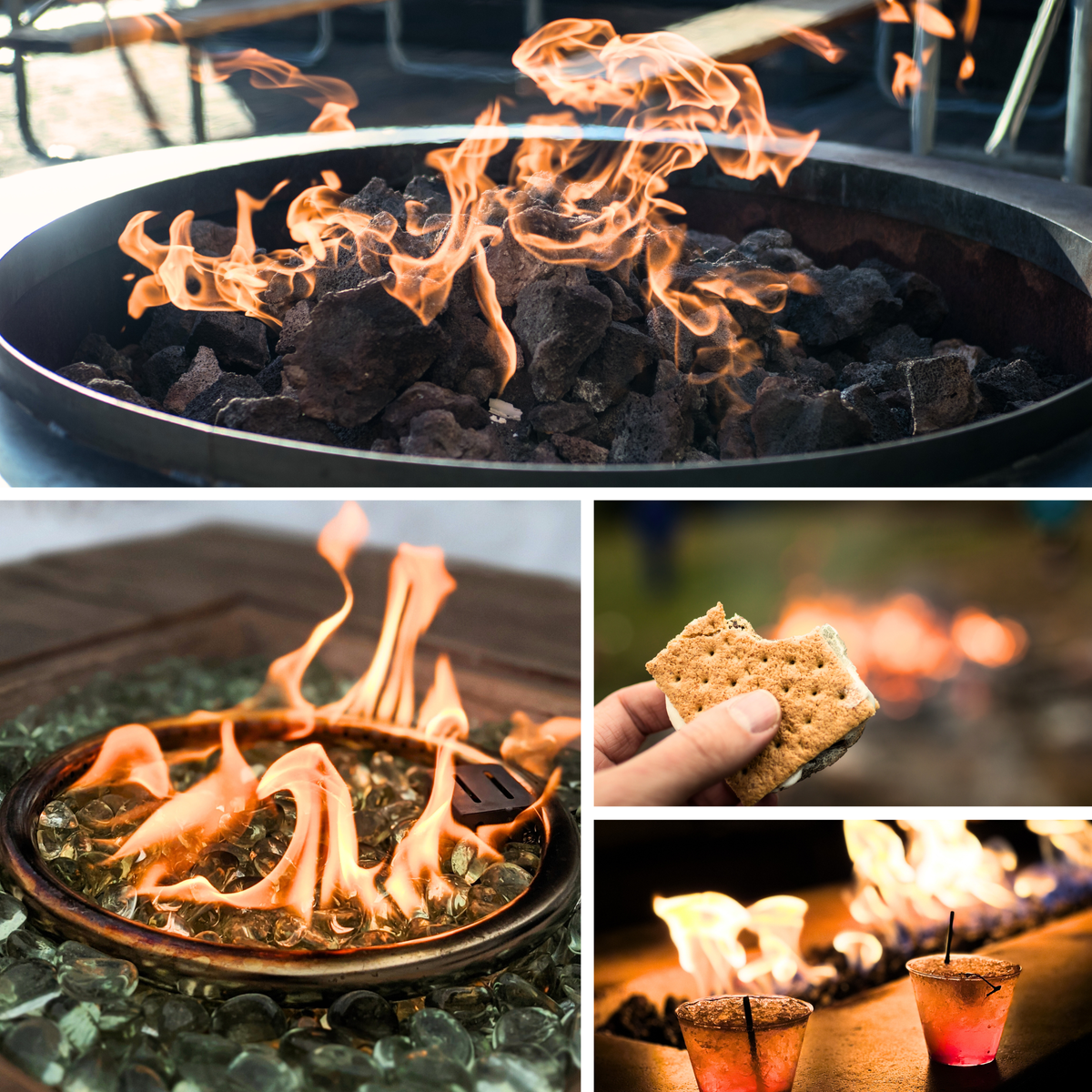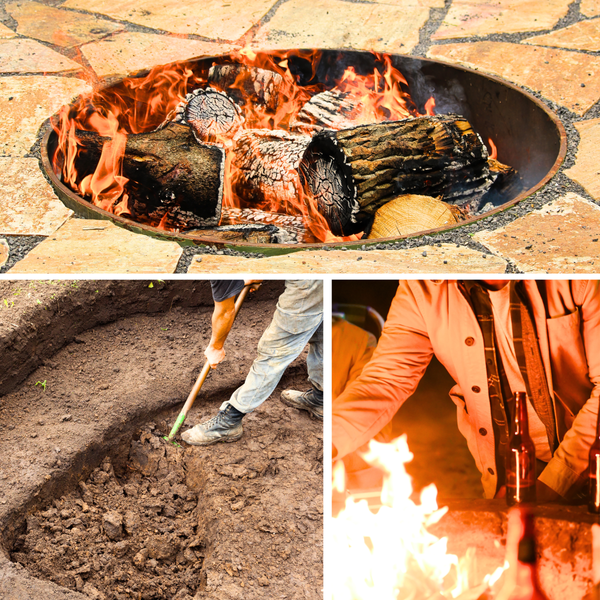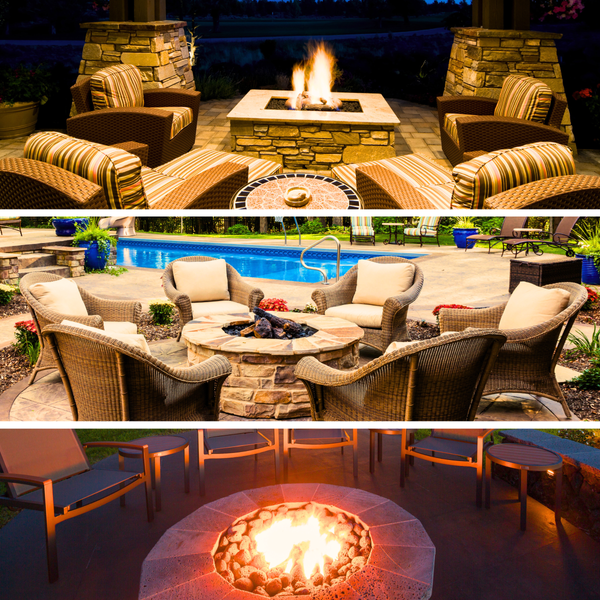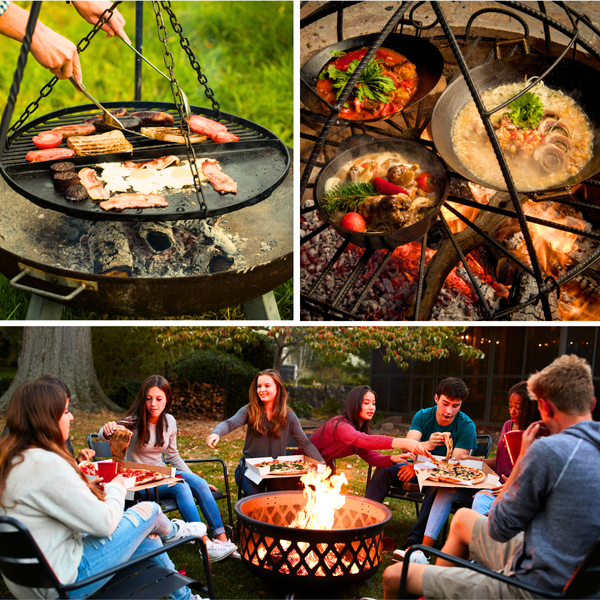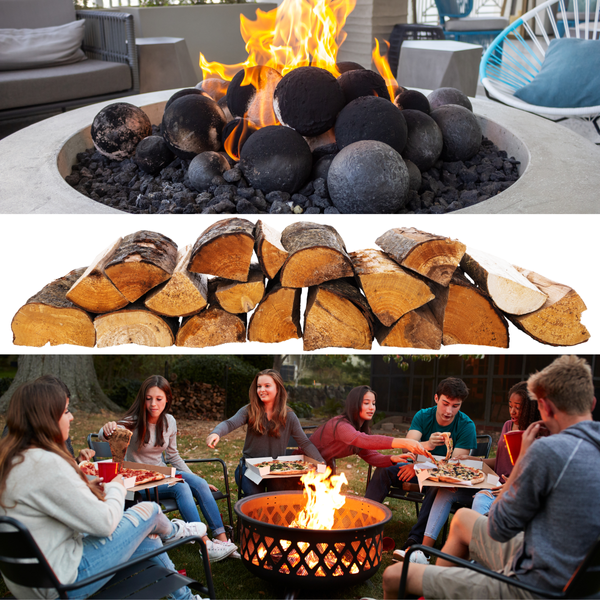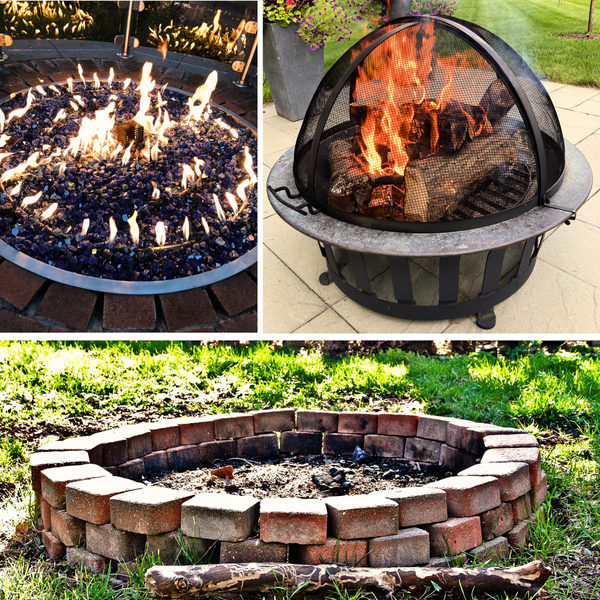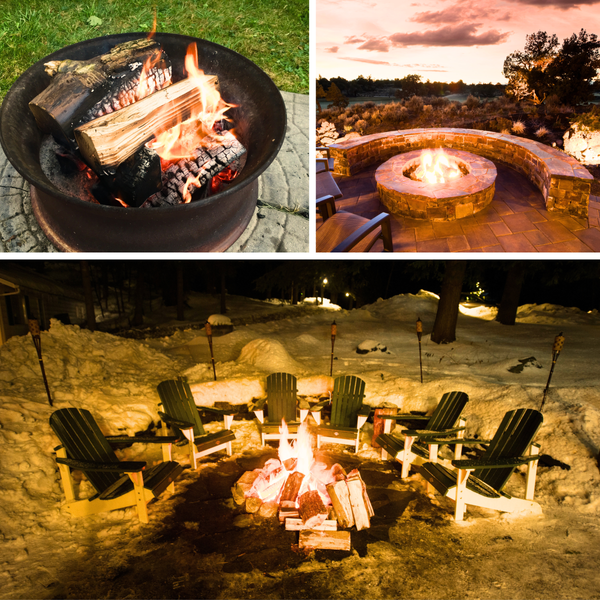Key Takeaways:
- Understand the factors that affect how long a propane fire pit tank lasts.
- Learn about the average burn time for different sizes of propane tanks.
- Discover maintenance practices that can extend the life of your propane tank.
Propane fire pits have become a staple in many outdoor spaces, offering warmth, ambiance, and a convenient way to gather with friends and family. One common question that arises for new and seasoned users alike is: how long does a propane fire pit tank last? The answer isn't as straightforward as one might hope, as several factors come into play. In this article, we'll explore these factors, provide practical examples, and offer tips to ensure your propane fire pit tank lasts as long as possible.
Understanding Propane and Its Usage
Propane, also known as liquefied petroleum gas, is a popular fuel choice for outdoor heating appliances like gas fire pits. It's known for its high heat output and environmentally friendly burn. Propane usage in a fire pit is measured in British Thermal Units (BTUs), which indicates the amount of heat required to raise the temperature of one pound of water by one degree Fahrenheit.
The Role of BTU Ratings and Heat Output
The BTU ratings of your gas fire pit play a significant role in determining how much propane is consumed. A fire pit with high BTU ratings will produce more heat but will also use more propane. Conversely, a fire pit with lower BTU ratings will use less fuel but also generate less heat.
Propane Tank Sizes and Burn Time
Propane tanks come in various sizes, from smaller tanks that are used for portable fire pits to large propane tanks for more permanent installations. A standard 20 lb propane tank, often used for a medium-sized grill, can typically last around 4 to 4.5 hours on high heat. For a gas fire pit, this can translate to several hours of burn time, depending on the flame height and heat setting.
Calculating Propane Consumption
To determine how long your propane tank will last on a fire pit, you need to consider the fire pit's BTU rating and the tank's capacity. For example, if your fire pit has a 50,000 BTU rating and you're using a 20 lb. tank, you can expect a burn time of approximately 9-10 hours, as one gallon of propane contains about 91,500 BTUs and a 20 lb. tank holds roughly 4.7 gallons.
Factors Affecting Propane Tank Longevity
Several factors can influence how long a propane tank lasts, including the fire pit's heat setting, the frequency of use, and the ambient temperature. High temperatures and high heat settings will consume more propane, while lower settings and cooler outdoor conditions can help conserve fuel.
Maintenance Practices for Propane Tanks
Proper maintenance of your propane tank and gas fire pit can extend the life of your fuel supply. Regularly checking for gas leaks, ensuring the gas line is clear, and following safety guidelines are all essential maintenance practices. Additionally, keeping the propane tank out of direct sunlight and in a cool, dry place can help maintain optimal pressure and prevent excessive fuel consumption.
Seasonal Considerations for Propane Usage
When it comes to how long your propane tank will last, the time of year can play a significant role. During the colder months, you might find yourself gathering around the firepit more frequently for warmth and ambiance. This increased usage naturally leads to a quicker depletion of your propane supply. It's not just about the firepit, though; if you're using a propane heater to keep your patio cozy, that will also contribute to the rate at which your tank empties. Keeping an eye on your propane levels and having a backup tank can ensure uninterrupted comfort and light during those chilly evenings.
Conversely, in the warmer seasons, your propane tank might last longer as the need for outdoor heating diminishes. However, this is when the medium-sized grill often becomes the star of the show. Grilling aficionados will agree that nothing beats the convenience and flavor of cooking with propane. Whether you're flipping burgers or roasting vegetables, the efficiency of your grill's propane consumption will affect how often you'll need to refill. Remember, a clean grill and a well-maintained burner can enhance heating efficiency, ensuring your propane tank lasts through many summer cookouts.
Propane Safety and Leak Prevention
One of the common questions regarding propane tanks is how to detect and prevent a gas leak. A gas leak not only poses a safety risk but can also shorten the lifespan of your propane supply. To ensure your firepit and other appliances operate safely, it's crucial to regularly check connections and hoses for signs of wear and tear. If you ever smell the distinct odor of propane or hear a hissing sound near your tank or appliance, it's important to turn off the gas supply immediately and investigate the issue, or call a professional if you're unsure.
Maintaining your propane tank and connected appliances is key to preventing leaks and ensuring heating efficiency. Always follow the manufacturer's guidelines for installation and maintenance. For instance, when attaching a propane tank to your firepit or grill, make sure the connection is secure and the hose is free from kinks or damage. Regular inspections can catch potential problems early, keeping the flames burning safely and efficiently. Remember, a little vigilance goes a long way in extending the life of your propane tank and keeping your outdoor gatherings worry-free.
Safety Guidelines and Propane Storage
Adhering to safety guidelines is crucial when dealing with propane gas. Always install and fill propane tanks according to the manufacturer's instructions. Proper storage is also important; propane tanks should be kept upright and in a well-ventilated area away from high temperatures and ignition sources.
The Impact of Multiple Appliances on Propane Usage
If you're using your propane tank for multiple appliances, such as a grill and a fire pit table, this will affect how long the propane lasts. More appliances mean more propane usage, so it's important to monitor your fuel levels and refill as needed.
Choosing the Right Propane Tank for Your Fire Pit
Selecting the right size propane tank for your gas fire pit is essential for optimal performance and convenience. Smaller tanks may be more suitable for portable fire pits or infrequent use, while larger tanks are better for those who use their fire pit regularly or have higher BTU appliances.
Propane vs. Natural Gas Fire Pits
While propane fire pits are popular for their portability and ease of use, natural gas fire pits are another option. Natural gas fire pits require a permanent gas line installation but offer the convenience of a continuous fuel supply, eliminating the need to monitor and refill propane tanks.
Extending Burn Time with Efficient Practices
To maximize the burn time of your propane tank, consider using your fire pit on a lower heat setting and only when necessary. Efficient practices like turning off the fire pit when not in use and reducing the flame height can help conserve propane.
Troubleshooting Common Propane Issues
If you suspect your propane fire pit isn't burning as efficiently as it should, there may be issues with the burner, air mix, or pressure. Regular troubleshooting and maintenance can help identify and resolve these problems, ensuring your propane lasts as long as possible.
Summary
The lifespan of a propane tank for a gas fire pit depends on several factors, including the size of the tank, the BTU rating of the fire pit, and how the fire pit is used and maintained. By understanding these factors and implementing proper maintenance practices, you can ensure that your propane fire pit provides many enjoyable hours of warmth and ambiance in your outdoor space.
FAQ Section
Q: How can I tell how much propane is left in my tank?
A: You can estimate the remaining propane by weighing the tank and subtracting the tare weight (the weight of the empty tank, which is usually indicated on the tank itself). Alternatively, there are gauges and monitors available that can help you determine the level of propane left.
Q: Is it better to have a larger propane tank for my fire pit?
A: A larger propane tank will last longer between refills, which is convenient if you use your fire pit frequently or for extended periods. However, the best size for you depends on your specific needs and how often you plan to use your fire pit.
Q: Can cold weather affect how long my propane lasts?
A: Yes, cold weather can affect propane pressure and cause your fire pit to burn less efficiently, potentially using more propane to achieve the desired heat output. It's important to protect your tank from extreme cold and follow the manufacturer's guidelines for use in different temperatures.



